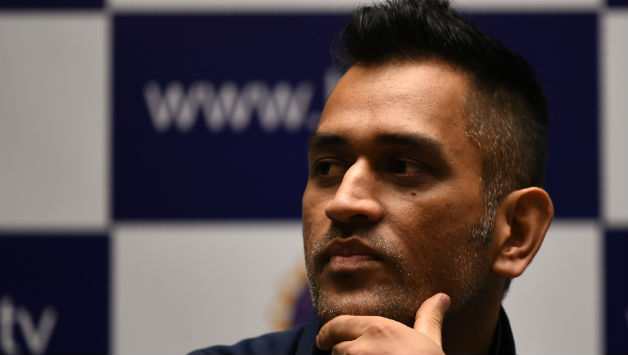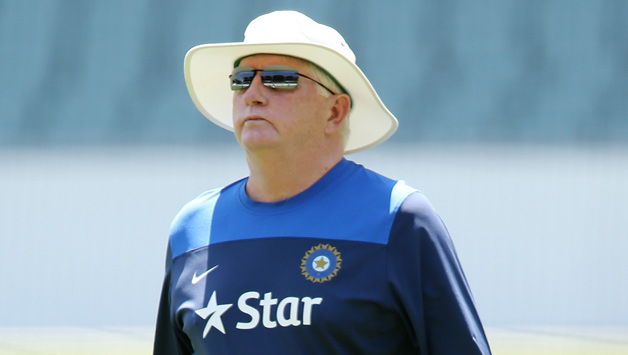
Aditya Sahay
A passionate sports person, Aditya Sahay lives, loves and thinks about cricket all the time. A part-timer number cruncher in making as well!
Written by Aditya Sahay
Published: Jun 09, 2016, 01:27 PM (IST)
Edited: Jun 09, 2016, 03:47 PM (IST)


“One of the most important things is that they understand our culture. More than Hindi or English, (the) one who understands our culture and our upbringing, will be better with us. In the past, too, these things are important, and the coaches who have understood better, there has been a difference on the ground,” exclaimed Team India’s limited-overs skipper MS Dhoni before the team departed for their short tour of Zimbabwe. Dhoni has been quiet on some questions but really outspoken on some. He gave us an insight of probably what he thinks is a criterion for taking up the top job of Indian cricket in future. ALSO READ: Dhoni: BCCI to take call on India’s future captain
India has a unique culture as it is an amalgamation of several cultures. India is a country with a multitude of cultures, religions, living style, food, music, and mindsets; this has a huge impact and respect across the world. Analysing on what Dhoni said in the press conference ahead of the team’s flight to Zimbabwe, he clearly gave an indication of how important it is to not only understand the environment of the Indian team’s dressing-room but also respect and have basic knowledge of Indian culture. The team has players from all parts of the nation, and if one understands the grooming of a player and his lifestyle and culture, the coach will be able to gel well with them. ALSO READ: Dhoni: Leading new India side will be different experience
The soon-to-be-appointed coach of Team India needs to be accepted by the spectators as well. It is really significant for a coach to be respected in the eyes of a cricket-crazy nation. The essence of communicating can also not be ruled out but it is not more important as knowing a bit of the country’s culture for a coach to fit in his role. Here is a look at the previous three coaches who headed the Indian cricket team before the position became vacant since ICC World Cup 2015:

Greg Chappell: Chappell was far away from adapting to the Indian culture and tradition. He was a typical Australian and a thorough professional with the top job. Sadly, not taking out time to know the players outside the game kept him aloof from others.
Some of his experiments bore good results, and there is no doubt Chappell is an sharp reader of the sport. Unfortunately, tussles with cricketers, especially most seniors, did not help the cause. Chappell seldom made attempts to come to terms with the environment and culture of the team he was coaching from 2005 to 2007.
India is not a sporting country, and it is crucial for coaches with a sporting culture (Australia, New Zealand or South Africa, for example) to come to terms with that.
Maybe Chappell went aboard with experiments. As a result some of them (Dinesh Karthik, Robin Uthappa and most importantly, Irfan Pathan), despite their talent, have not been permanent in the team since his departure. His famous incident of pointing middle finger towards the crowd at Eden Gardens and spat with Sourav Ganguly only ruined things for him. There was always a gap between him and his players and not knowing the country’s history and culture led to his ouster.
In a country like India where cricketers are considered superstars, even demigods, Chappell wanted to run the show. That did not work.

Gary Kirsten: One of the most successful Indian coaches till date, Kirsten served the Indian team from 2008 to 2011. He led the team to their second World Cup title in 2011, held in India. Kirsten typically stayed away from limelight, allowing cricketers their space; at the same time he concentrated on the job, and mastered the art of getting his way done without getting into controversies.
It was during Kirsten’s tenure that Virat Kohli established himself as a player in international cricket, while Gautam Gambhir and Virender Sehwag took their game to the next level. India reached the No. 1 spot in Test cricket.
Kirsten realised that disturbing the stars would probably not make them happy. In a country where ego often dominates reality, Kirsten handled players with astonishing ease. Players and fans gave him his due: he earned earn respect from his troops the way few Indian coaches have.

Duncan Fletcher: Fletcher was appointed Team India’s head coach following Kirsten’s tenure. He was appointed just after India won their second World Cup. His stint started on a low, starting with whitewashes in England and Australia.
Fletcher worked with the players from 2011 to 2015. Unlike his predecessors, Fletcher seldom spoke in public; television cameras panned on him and commentators took note even at the slightest hint of a smile on Fletcher’s face. He seldom made his voice known to the media, which gave an air of aloofness; it certainly did not endear him to the fans.
Fletcher’s biggest drawback was his appointment immediately after the success story under Kirsten, which created a pressure on him. He was expected to deliver on similar lines like his predecessor but his functioning was different.
The biggest mistake on Fletcher’s part was perhaps his frequent trips back home during off season, which meant he seldom spent time trying to gel with cricketers. In other words, just like Chappell, Fletcher did little effort to understand India — something Dhoni feels is immensely crucial for an Indian coach.
Needless comparisons with Kirsten and pressure never brought the best out of a person who revived England cricket at the turn of the century.
With many former Indian players applying for the role of the head coach of the national team, one does not see a foreigner become Fletcher’s successor. Maybe Indian selectors or fans did not appreciate the vision of Chappell and did not give a person like Fletcher to express freely.
On the other hand, these coaches never felt the need to know more about India as a nation and get closer to their players. If an Indian becomes a coach, he will not have to spend time on these aspects. In the end it will be a call between a neutral, hard-nosed taskmaster and an accommodating, understanding mentor. Dhoni: New coach should understand Indian culture
(Aditya Sahay is a journalist with CricketCountry who is completely into sports and loves writing about cricket in general. He can be followed on Twitter at adisahay7)
This website uses cookies so that we can provide you with the best user experience possible. Cookie information is stored in your browser and performs functions such as recognising you when you return to our website and helping our team to understand which sections of the website you find most interesting and useful.
Strictly Necessary Cookie should be enabled at all times so that we can save your preferences for cookie settings.
If you disable this cookie, we will not be able to save your preferences. This means that every time you visit this website you will need to enable or disable cookies again.
